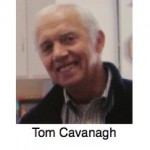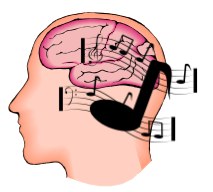ABOUT ALZHEIMERS
(The following article by writer, Tom Cavanagh was first published in The Record, July, 2012 – Daniel Coulombe, News Editor.)
 “The most beautiful experience we can have is mysterious. It is the fundamental emotion which stands at the cradle of true art and science.” (Albert Einstein)
“The most beautiful experience we can have is mysterious. It is the fundamental emotion which stands at the cradle of true art and science.” (Albert Einstein)
I spent the last several weeks in my hometown of Peterborough, Ontario where beautiful experiences occurred which Einstein might describe as mysterious. I was visiting my brother John who lives in the heart of darkness called, Alzheimer’s. We met often and regularly. And naturally, given the affliction of Alzheimer’s, not everything was beautiful. But it was better than previous visits — and I take what I can get with thanks.
He has been in three different care homes over the past months but neither his wife or children were satisfied with the first two. John was often depressed and angry but things are so much better now in his new location Centennial Place in Millbrook about 20 miles from Peterborough. I have heard that finding a good humane place is a bit like winning a lottery. Don’t quote me on that, but the family has lucked out. Centennial Place is great and the staff incredible.
My wife’s mother, Adeline, lived to 103 and was also in several different homes. Some were super depressing. Residents sitting in halls staring at walls when we arrived and still there hours later when we left. No mental stimulation and little even in the way of physical movement. What a downer.
 However, Adeline continued bright, alert and cheerful right up to the end. Reason: My wife has three sisters living in Peterborough who were with her EVERY DAY for years: morning, afternoon, and evening. They took turns, feeding, caring, reading, talking to her. It’s a kind of a dream situation, but you’d need millions plus deeply devoted children nearby with the time, will, abilities, and love. Not easy to come by over a period of years, but a remarkably encouraging and almost mysterious indication of our potential for goodness.
However, Adeline continued bright, alert and cheerful right up to the end. Reason: My wife has three sisters living in Peterborough who were with her EVERY DAY for years: morning, afternoon, and evening. They took turns, feeding, caring, reading, talking to her. It’s a kind of a dream situation, but you’d need millions plus deeply devoted children nearby with the time, will, abilities, and love. Not easy to come by over a period of years, but a remarkably encouraging and almost mysterious indication of our potential for goodness.
Alzheimer’s and dementia are real problems in our aging society and they will worsen as the baby boomers grow older. But it is not just a problem for the elderly. Today some 71,000 Canadians under the age of 65 have dementia. The Alzheimer Society also reports more than 500,000 Canadians have dementia and that number steadily increases. Not much in the way of good news. Of course research studies are underway all over the globe so there is hope. However, I am not confident about a cure.
There will be progress undoubtedly and we are definitely living longer — but that just adds to the problem. We’re not meant to live forever. Pay attention you Zoomers. Sure, live full lives but don’t lose touch with reality. I hate the Zoomer magazine with its boring articles and all the models looking about forty.
 So where is the good news? Well my brother is happier than he has been in a while. He and I really sang up a storm on several occasions at the Centennial. He’s often lost and doesn’t recognize friends, me, or his children. But he remembers song lyrics. I noticed this ability once before but this time I brought my guitar and he knew the words of an unbelievable number: “Wake Up Little Susie,” “Heartaches By the Number,” “Did She Mention My Name,” “Bye, Bye Love,” “Folsom Prison Blues.” The list goes on, and he wasn’t just filling in occasionally — he had the words down cold and clapped hands in perfect rhythm.
So where is the good news? Well my brother is happier than he has been in a while. He and I really sang up a storm on several occasions at the Centennial. He’s often lost and doesn’t recognize friends, me, or his children. But he remembers song lyrics. I noticed this ability once before but this time I brought my guitar and he knew the words of an unbelievable number: “Wake Up Little Susie,” “Heartaches By the Number,” “Did She Mention My Name,” “Bye, Bye Love,” “Folsom Prison Blues.” The list goes on, and he wasn’t just filling in occasionally — he had the words down cold and clapped hands in perfect rhythm.
He caused a bit of a sensation with the Centennial Staff and on several occasions they asked me to return and sing with John in a “Centennial Has Talent” show they are planning.
How amazing it seems and mysterious. He doesn’t know who I am, and probably doesn’t even know he has a brother. He doesn’t know where he is or how to find his room, but somewhere in his brain he has this incredible storage of lyrics that he draws on rather easily and improves rapidly with a little practice and repetition.
It is sometimes a little sad but there are sweet precious memories too. One day in his room he observed. “It’s nice here. I’m so glad they didn’t put me in a home.” Our conversation is limited but we have fun singing. It is really special although sometimes it’s hard to stop him. But then again, why should I want to. No one is complaining. So far.
CONCLUSION
Progress occurs about understanding how our brain functions. More needs to be done, but advances are encouraging. Not long ago the skull had to be cracked open for doctors to look in. So we’ve come a long ways but mysteries remain.
Memory is a fascinating topic. Cognitive psychologists speak of two main sub-types: implicit and explicit. It’s a bit unfair and risky for a layman to address this subject. But here is a partial attempt of one portion. Implicit memory is for things we know how to do but could not explain. Think of trying to tell someone how to drive through Montreal. I’ve driven it frequently and easily but could hardly explain it to someone. Or think of riding a bike. Implicit is more intuitive than explicit memory which is declarative and often easily available. Example: what is the capital of France? I’m out of my depth on this but there is one more thing to say.
With prompting John can draw on songs he once knew well. Implicit memory. To repeat he does not know me as his brother and at times sees me as one of the Centennial staff. But – and this is important – somewhere in his mind there are implicit memories of me as someone he knows, likes, loves, trusts. Someone he wants to stay, walk, talk, and sing with. When parting we hug and he tears up and always says he loves me. He doesn’t know I’m his brother but he does not hug the staff nor tell them he loves them when they’re leaving.
I count my blessings.
Tom Cavanagh – Bio
Married 52 years and still in love with same woman. (“If my wife finds out I’m in big trouble” Henny Youngman). Have five children — now handsome successful adults. Taught at elementary, high school, college, and university level. Lived and worked six years in Ghana and Malawi, Africa. Retired as Academic Dean in the CEGEP system. A writer all my life.
